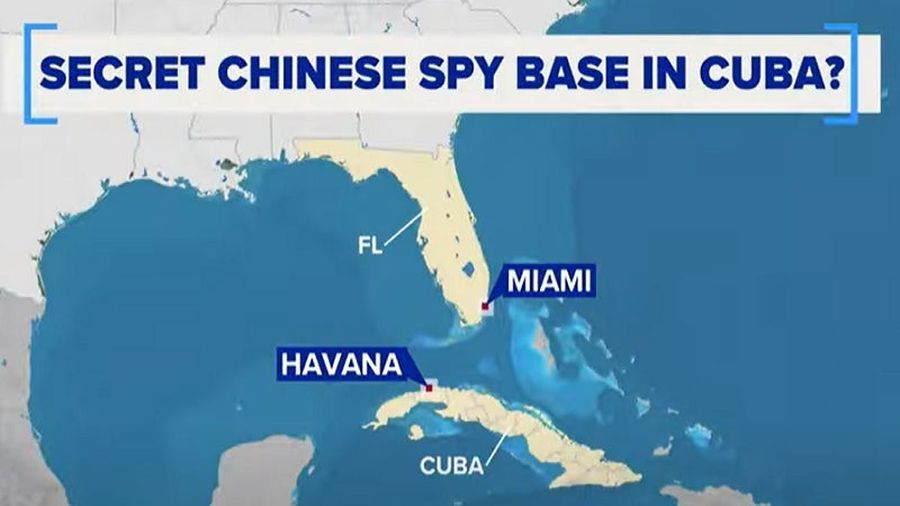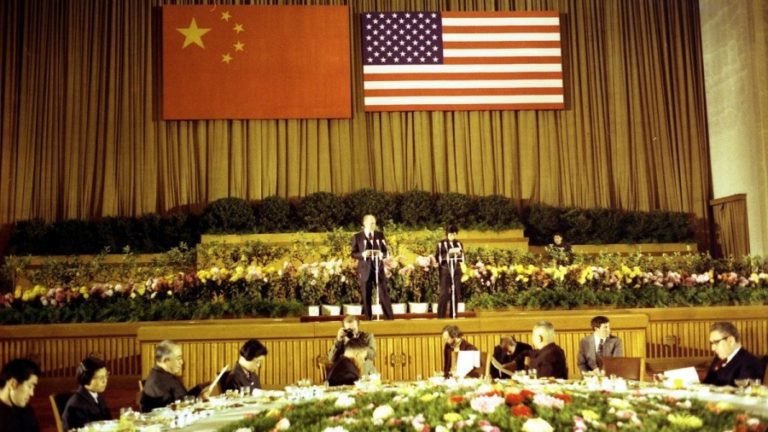Did Pentagon Hardliners Leak the Report About a Planned Chinese Spy Base in Cuba?
Regardless of their reasons behind publishing it, the Wall Street Journal’s report gave anti-Chinese hardliners in the Pentagon and their Republican allies the pretext to pressure the Democrats to escalate the US’ New Cold War with China.
The Wall Street Journal (WSJ) reported on Thursday that China and Cuba agreed to a deal for Beijing to set up a spy base on the island in exchange for giving Havana several billion dollars. This could place many of the US’ East Coast naval assets under surveillance, thus explaining why the report quickly made global headlines. It was swiftly denied by Cuba but also, curiously enough, by US National Security Council spokesman John Kirby and Pentagon spokesman Air Force Brig. Gen. Patrick Ryder too.
The first told MSNBC that “I’ve seen that press report, it’s not accurate”, while the second said during a press briefing that “I’ve seen that reporting, I can tell you, based on the information that we have, that that is not accurate.” These officials’ similar wording with respect to stressing the alleged inaccuracy of the report made some speculate that parts of it might be true while others aren’t, though this is only a hypothesis for now and can’t be known for sure.
In any case, this sequence of events raises some questions about what might really be going on behind the scenes. The Mainstream Media is known for concocting fake news about the US’ rivals, yet their information warfare provocations are usually extended false credence by officials afterwards, not denied by them. Kirby and Ryder’s curious reaction to this latest report makes it seem like the Biden Administration didn’t plant this story and is surprised that it was published in the first place.
Apart from the possibility that this is a fabricated report, it might be that there’s some truth to it but the WSJ’s sources jumped the gun by leaking the gist of it to the press before anything tangibly emerged and without tacit permission from their superiors. They might not have had any political intentions in doing so but simply wanted to get paid by that outlet for their information or felt an obligation to inform the American people about China’s alleged attempts to spy on a large swath of their country.
A third version of events is that the Pentagon’s anti-Chinese hardliner faction was responsible for this leak, which they shared with the intent of forcing officials to finally take action to stop these plans out of frustration that they weren’t already doing enough to this end. This policymaking faction likely also fears the US’ recent outreaches to China aimed at reviving their plans for a New Détente that were unexpectedly derailed by February’s balloon incident and therefore wants to sabotage them as well.
Whatever the truth may be, the public is preconditioned to believe that “where there’s smoke, there’s fire”. This makes them susceptible to thinking that all reports have some inkling of truth to them, which in the domestic American political context means that they’re ripe for having their perceptions about this exploited by the Republicans. That party is known for its hard line against China, Cuba, and those two’s communist form of government, unlike the Democrats who are considered comparatively softer.
In practical terms, the WSJ’s report might thus impede the Biden Administration’s attempts to revive its planned New Détente with China by generating very strong partisan resistance to this policy ahead of next year’s elections. Irrespective of whether it’s completely fabricated or if there’s some truth to it, China might interpret this story as signaling that there’s still significant opposition within its policymaking bureaucracy to de-escalating bilateral tensions, thus reducing its faith in the success of this scenario.
The takeaway is that Chinese-US ties likely won’t improve for the foreseeable future even if both sides’ leaders have the political will for this to happen, which remains questionable to begin with in light of the Biden Administration’s aggressive military containment of the People’s Republic. Regardless of their reasons behind publishing it, the WSJ’s report gave anti-Chinese hardliners in the Pentagon and their Republican allies the pretext to pressure the Democrats to escalate the US’ New Cold War with China







